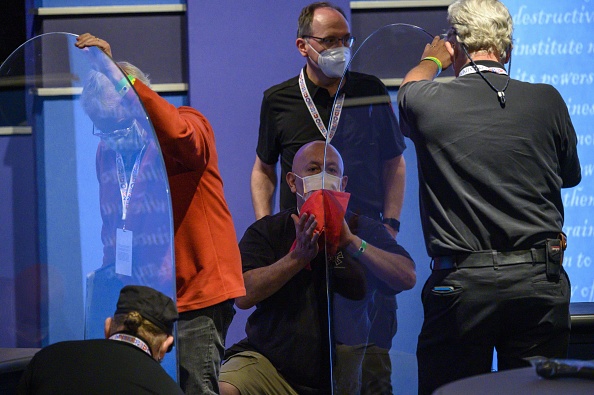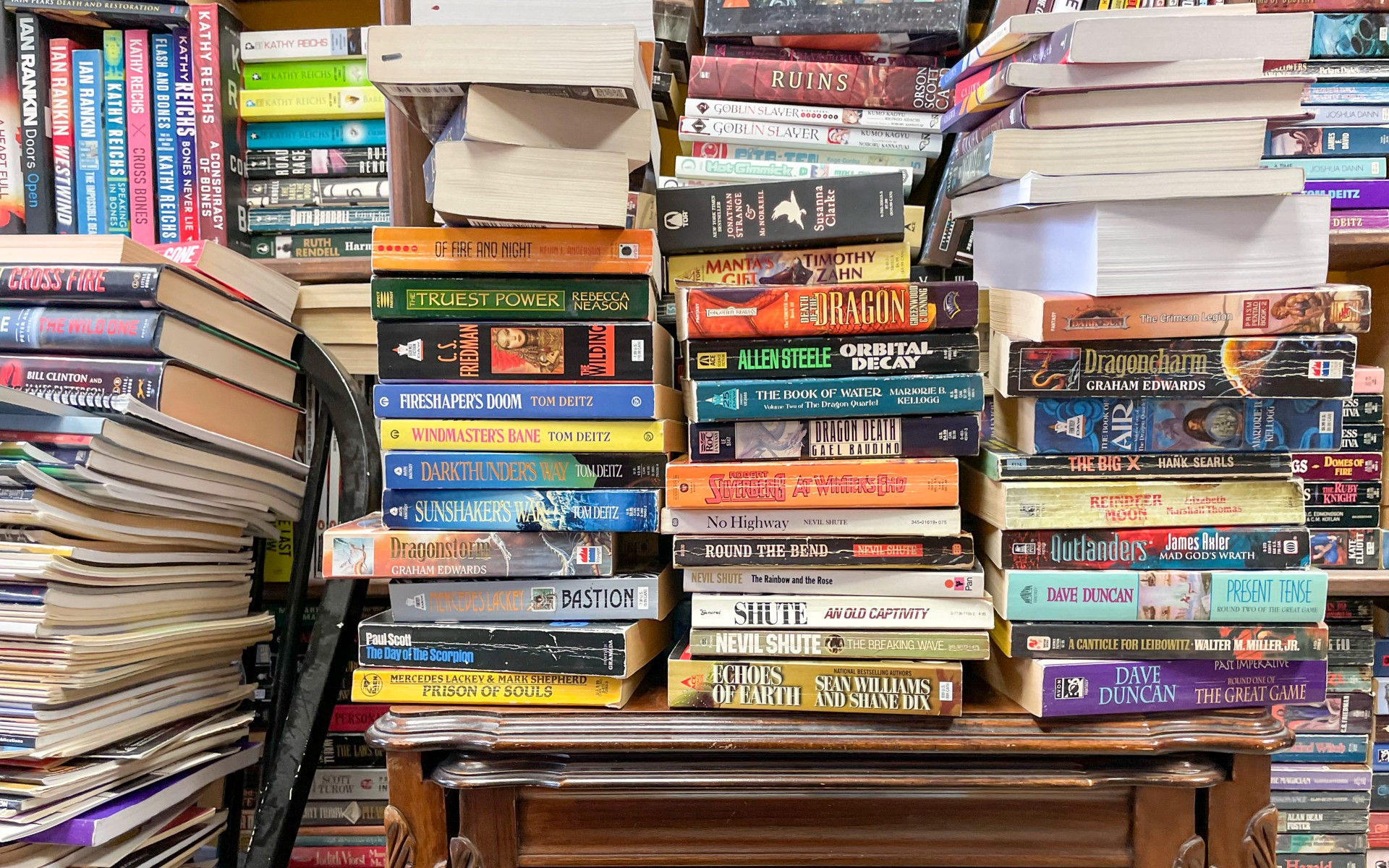The plexiglass shields at the vice presidential debate are 'absurd' and useless, infectious disease experts say


A free daily email with the biggest news stories of the day – and the best features from TheWeek.com
You are now subscribed
Your newsletter sign-up was successful
Vice President Mike Pence and Sen. Kamala Harris have already scuffled over having protective plexiglass barriers on stage during Wednesday night's debate, with Pence's team ultimately relenting to allow it. But the effectiveness of the plastic shields has drawn outright laughter from infectious disease experts, who claim the measure is "absurd" and useless, The New York Times reports.
COVID-19 is carried by aerosols, which can drift around a room and travel further than six feet when people are indoors. While Harris and Pence will be positioned 12 feet apart, the barriers around them will offer little protection if one of them is sick, since the aerosols can just float past or circulate around them.
Pence, notably, has tested negative for COVID-19 despite probable exposure, but he has also not yet made it out of the 14-day window in which the disease can begin to manifest.
The Week
Escape your echo chamber. Get the facts behind the news, plus analysis from multiple perspectives.

Sign up for The Week's Free Newsletters
From our morning news briefing to a weekly Good News Newsletter, get the best of The Week delivered directly to your inbox.
From our morning news briefing to a weekly Good News Newsletter, get the best of The Week delivered directly to your inbox.
"Those plexiglass barriers are really only going to be effective if the vice president or Kamala Harris are spitting at each other," Boston University epidemiologist Ellie Murray explained to the Times. "Those are really just splatter shields." Linsey Marr, a scientist at Virginia Tech whose expertise is in airborne transmission, actually laughed out loud when she saw the stage's set up, explaining that the barriers "are even smaller and less adequate than I imagined."
Joseph Allen, a ventilation expert at the Harvard T.H. Chan School of Public Health, told the Times that it's not just about the danger to Pence, Harris, and the moderator: "My biggest concern," he said, "is that millions of people will be getting the message that this is what an effective set of controls looks like." Read more about what actually would make the debate safer at The New York Times.
A free daily email with the biggest news stories of the day – and the best features from TheWeek.com
Jeva Lange was the executive editor at TheWeek.com. She formerly served as The Week's deputy editor and culture critic. She is also a contributor to Screen Slate, and her writing has appeared in The New York Daily News, The Awl, Vice, and Gothamist, among other publications. Jeva lives in New York City. Follow her on Twitter.
-
 Where to go for the 2027 total solar eclipse
Where to go for the 2027 total solar eclipseThe Week Recommends Look to the skies in Egypt, Spain and Morocco
-
 The end of mass-market paperbacks
The end of mass-market paperbacksUnder the Radar The diminutive cheap books are phasing out of existence
-
 Political cartoons for February 22
Political cartoons for February 22Cartoons Sunday’s political cartoons include Black history month, bloodsuckers, and more
-
 Labor secretary’s husband barred amid assault probe
Labor secretary’s husband barred amid assault probeSpeed Read Shawn DeRemer, the husband of Labor Secretary Lori Chavez-DeRemer, has been accused of sexual assault
-
 Trump touts pledges at 1st Board of Peace meeting
Trump touts pledges at 1st Board of Peace meetingSpeed Read At the inaugural meeting, the president announced nine countries have agreed to pledge a combined $7 billion for a Gaza relief package
-
 NIH director Bhattacharya tapped as acting CDC head
NIH director Bhattacharya tapped as acting CDC headSpeed Read Jay Bhattacharya, a critic of the CDC’s Covid-19 response, will now lead the Centers for Disease Control and Prevention
-
 Witkoff and Kushner tackle Ukraine, Iran in Geneva
Witkoff and Kushner tackle Ukraine, Iran in GenevaSpeed Read Steve Witkoff and Jared Kushner held negotiations aimed at securing a nuclear deal with Iran and an end to Russia’s war in Ukraine
-
 Pentagon spokesperson forced out as DHS’s resigns
Pentagon spokesperson forced out as DHS’s resignsSpeed Read Senior military adviser Col. David Butler was fired by Pete Hegseth and Homeland Security spokesperson Tricia McLaughlin is resigning
-
 Judge orders Washington slavery exhibit restored
Judge orders Washington slavery exhibit restoredSpeed Read The Trump administration took down displays about slavery at the President’s House Site in Philadelphia
-
 Hyatt chair joins growing list of Epstein files losers
Hyatt chair joins growing list of Epstein files losersSpeed Read Thomas Pritzker stepped down as executive chair of the Hyatt Hotels Corporation over his ties with Jeffrey Epstein and Ghislaine Maxwell
-
 Judge blocks Hegseth from punishing Kelly over video
Judge blocks Hegseth from punishing Kelly over videoSpeed Read Defense Secretary Pete Hegseth pushed for the senator to be demoted over a video in which he reminds military officials they should refuse illegal orders
